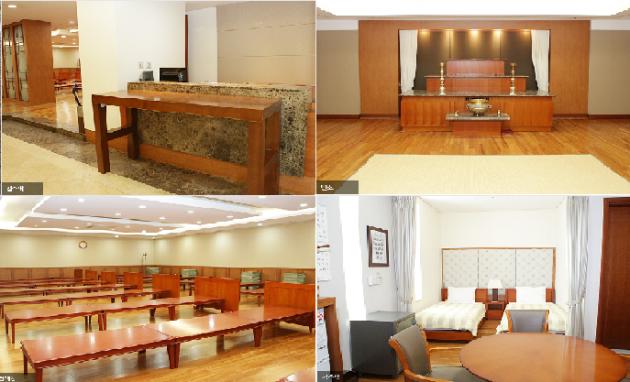Korea's medical culture③ Like everything else, burial service has changed much
“From the cradle to the grave.” In Korea this famous slogan of a welfare state befits the business practice of large general hospitals. Not a few Koreans are born in these hospitals, are treated there for all kinds of diseases they may have in various stages of life, and upon death, lie in their funeral homes.
What sets large Korean hospitals apart from their foreign counterparts is they also provide funeral services.
Koreans hold funerals for their beloved ones in one of the three places, in descending order of frequency - hospital funeral home, other specialized funeral home or private home.
For long, Koreans had made it a rule to hold funeral services at their private residences, even bringing home the bodies of their beloved ones who end up dead in the streets. That changed a few decades ago. Now people take the deceased to one of these large hospitals to hold the final ceremony, for the sake of convenience and other reasons.
Usually, Korean funerals last two nights and three days. They begin immediately after the patient passes away, presumably at one of those large hospitals. One can find a list of hospitals, their facilities, and fees by searching Naver, the largest Internet portal site here.

Hospital funeral homes have a reception room, a main room for paying respects and a dining room with a kitchen, which operates day and night. Because families often sleep at the funeral home, there is also a room for some sleep and rest.
Hospital funeral homes are essentially a one-stop service. They offer a wide range of equipment and supplies, food choices according to Korean customs, and funeral directors. All this saves the hassle of finding a separate funeral home, funeral service providers, and funeral service equipment. Large hospitals also provide ample parking space, which is difficult to find in Korea.
Funeral guests pay respects, dine, and grieve at the funeral hall at all hours. Typically the closer one is to the deceased or the bereaved family, the longer one stays. Some guests stay all night, or even for a couple of days.
Considering the amount of work, employees and services associated with funeral services, foreigners might as well wonder why hospitals provide funeral services in the first place, thinking they could be busy just treating the sick.
Much of this has to do with the nation’s unique health insurance system. The national health insurance keeps the level of medical fees at a low level compared with most other industrial countries, forcing hospitals to try to make up for the losses by running related businesses. Funeral home operations serve as one of the biggest revenue streams for big-name hospitals. According to Edaily, a local online media outlet, 14 university hospitals earned a combined total of than 100 billion won ($87 million) over the past six years.
Most Koreans know that the bigger the hospital, the nicer the facilities at funeral homes, and the higher the price. The expense of funeral homes differs by hospital, room, and services provided.
So how much do Koreans pay for a hospital funeral home on average? According to a study conducted by Korean Consumer Agency, the average cost of hospital funeral room and services is 9.38 million won ($8,220). An additional 2 million to 5 million won is incurred for burial and cremation services – bringing the total amount to the tune of 10 million to 15 million won.
Even though Korean funerals are expensive, these costs are often covered by cash gifts from mourners. Each guest brings 50,000 to 100,000 won in an envelope with their names on it. The family of the deceased makes note of the amount and name, to give back the similar amount if the giver faces similar circumstances.
Overall, hospital funeral homes facilitate the funeral process, providing comprehensive all-in-one service.

